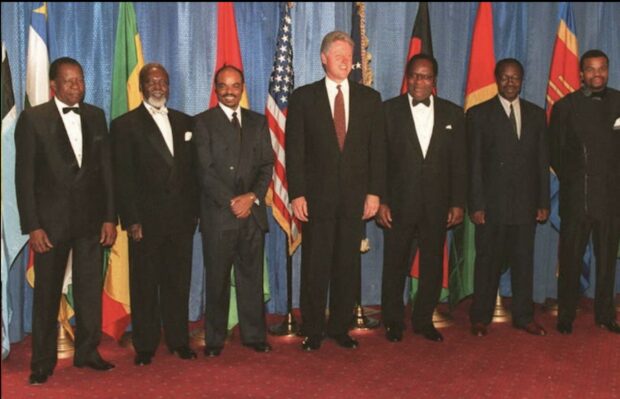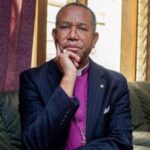Celebrating One of Africa’s Greatest Leaders: A Tribute to Sir Ketumile Quett Joni Masire – Part 3

After 37 years in public life president Masire retired in 1998. In those years Botswana’s circumstances had changed significantly from what the economic experts foresaw.??From 1966 to 1998 Botswana achieved the world’s highest annual economic growth rate of any country in the world. In the words of president Masire, “We built and sustained a multi-party democracy; the vast majority of our people enjoyed improved health, education, and increased incomes and employment opportunities; and we managed our way through a dangerous security situation created by our neighbours.” Transparency International rated Botswana as having one of the lowest level of corruption in Africa, indeed lower than many European countries. Botswana had active and vocal opposition parties because president Masire believed strongly that, “In a democratic system, parties that are in opposition to the government of the day have an important role to play. If opposition parties are strong and full of ideas, they sharpen the wits of the governing party and keep it on its toes. If the opposition parties are weak or lacking in ideas about alternative policies, they weaken both the country and the ruling party.” Botswana also developed a vigorous and independent press. And Botswana achieved a reputation for principled positions and leadership in regional affairs, especially during the long struggle to liberate southern Africa from colonialism and racist white minority regimes. He was one of the founders of the Southern African Development Community (SADC). All this did not happen by chance it was the result of prudent leadership which brought about Botswana’s successes. This prudent leadership was succinctly summed up by the illustrious Motswana politician and diplomat Dr Gaositwe Chiepe, in one word: “Teamwork.” Sir Ketumile agreed that it summed up their approach very well. He explained that, “The times we were most successful were when we worked together, both as politicians and with civil servants. Our success could not have been achieved had we not found able people, convinced them to enter politics or the public service, and encouraged and enabled them to work productively with one another. Our failures came at those times when we lost the commitment to teamwork, consultation, consensus and cooperation.” After leaving office, Sir Ketumile divided his time between his passion for farming and as a global statesman in conflict resolution. He often worked through his Sir Ketumile Masire Foundation. In 1998 he was appointed by the OAU to Chair an International Panel of Eminent Personalities which investigated the circumstances surrounding the 1994 Rwandan genocide. A 300 page report on the Rwanda genocide was produced which concluded that the Rwanda genocide was preventable. Individuals and governments were culpable. After finalising the Rwanda report president Masire was appointed to facilitate the Inter-Congolese Dialogue, 2000-2003, with the objective of bringing about a new political dispensation for the Democratic Republic of Congo. This appointment illustrated his great, inimitable leadership. Dr. Salim Salim, the Secretary General of the OAU, told him the Congolese parties were looking for possible candidates to be a Facilitator. The three principal belligerents had to agree, and they had rejected eleven other individuals but all agreed on Sir Ketumile as a Facilitator. Drawing on his long experience as leader of Botswana, he knew he needed to understand all the issues, so each party would feel its concerns were being addressed. A great deal of patience was required and this he had aplenty. Throughout his three years and three months working on the Inter-Congolese dialogue, President Masire tried to keep everyone involved and informed —whether they were inside or outside. He wanted to be sure that those outside exercised influence for good where they could, and also that they did not give the wrong signals that would encourage the belligerents or other parties to be too stubborn. The dialogue gave the Congolese their first opportunity to come together to frame a future for their country. They had never been through a democratic process of consultation, and president Masire had to start at the very beginning. He pressed them to achieve what he believed they could. At one stage one of the participants asked president Masire how he could be certain that if they agreed to the proposals, the other sides would also agree. President Masire told them what he always told aspiring politicians in Botswana: there is always a risk in politics in a democratic setup. If you are afraid to take a risk, you cannot be a politician. He said it was reasonable to assume that if others saw one party was accommodating, as was true of some of the participants, then those others would also begin to be accommodating. The closing ceremony and the signing of the the Inter-Congolese dialogue took place on 2 April, 2003, in Sun City. But its implementation was difficult. Periodic fighting continued, and a constitution was not adopted until early in 2006.
By the Rt. Rev’d. Dr. Musonda Trevor Selwyn Mwamba President of the United National Independence Party (UNIP), Zambia. (Formerly Bishop of Botswana)


